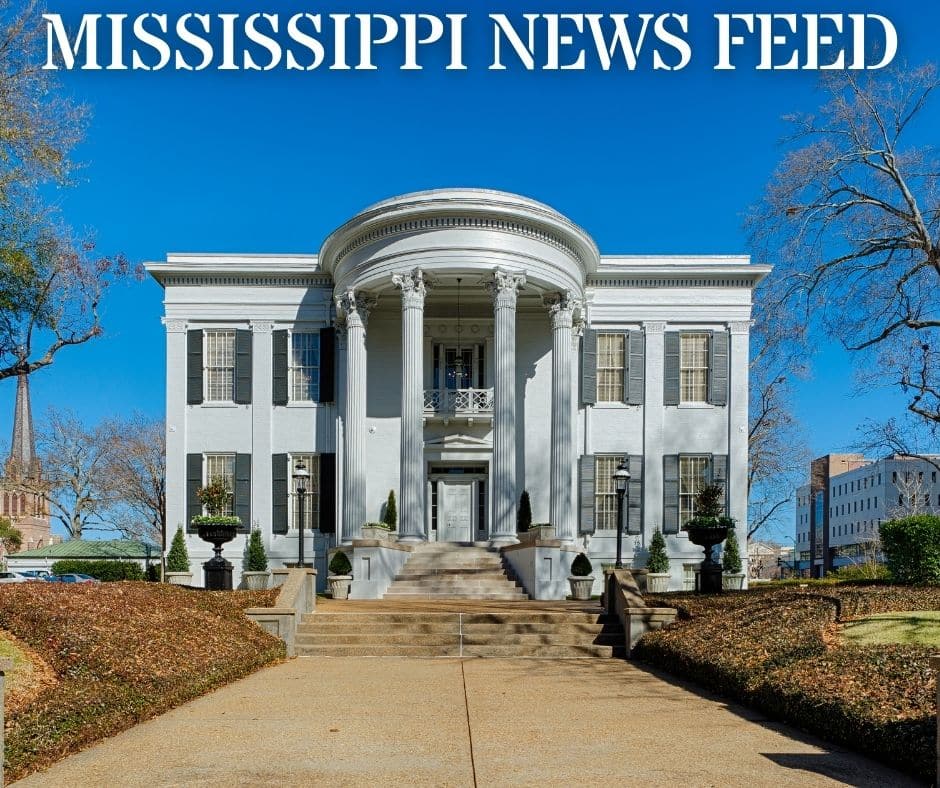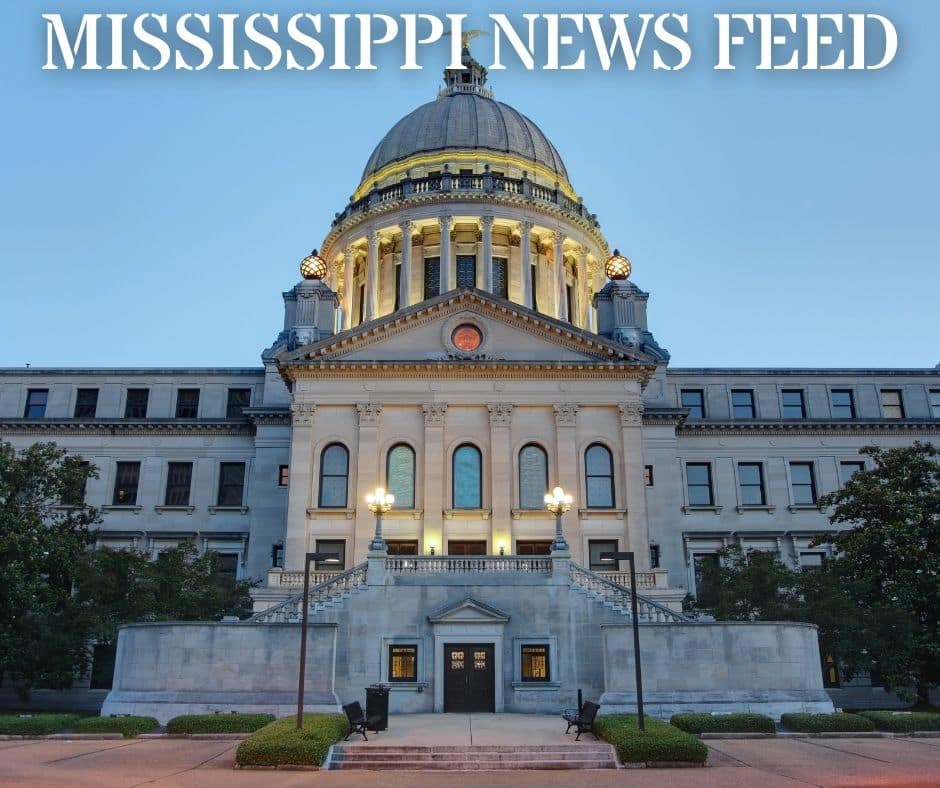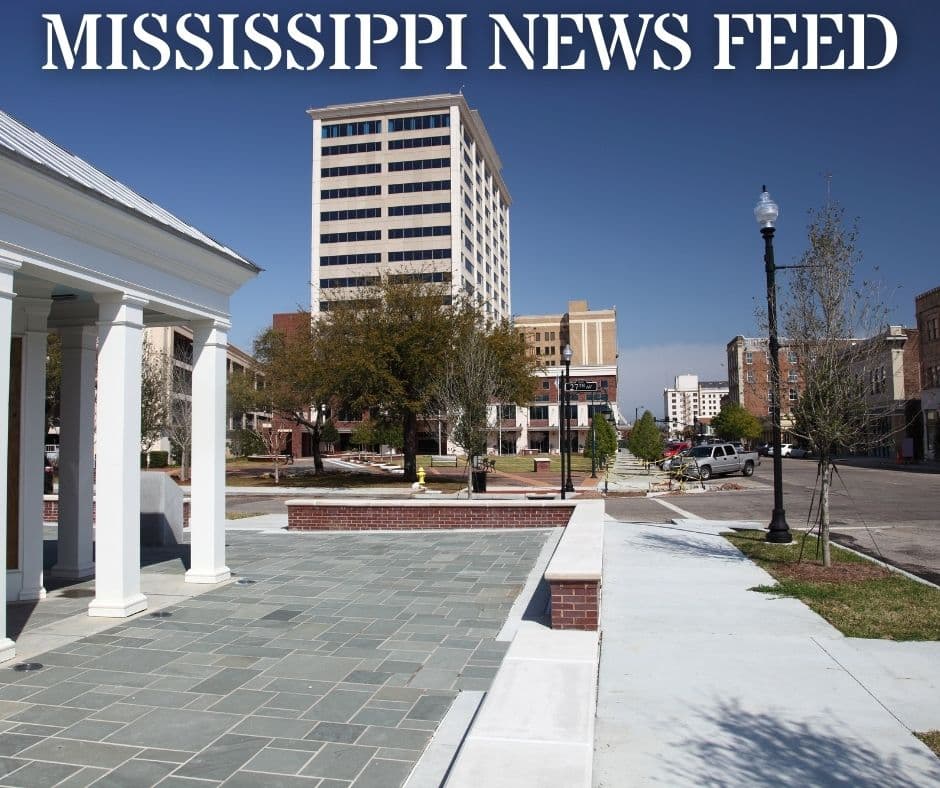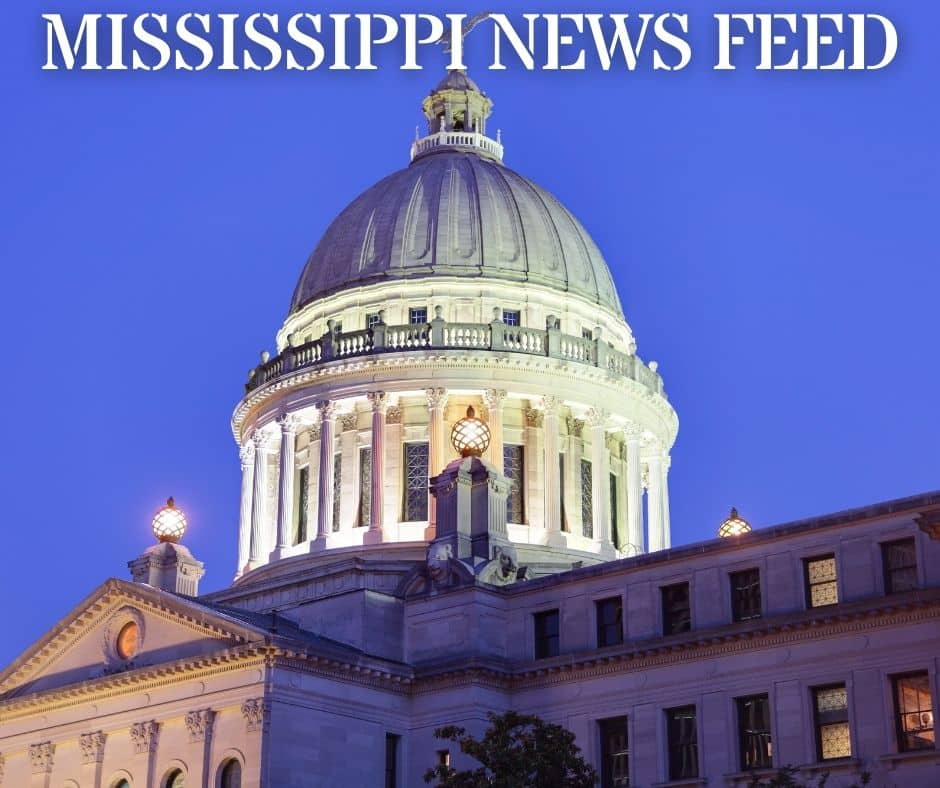Magnolia Tribune
The Secret Sauce of American Politics

Maybe, just maybe, American political culture would improve if politics were attuned to popular tastes – not elite palates or nihilist tendencies.
Americans are sour. Check any poll, and the results are identical. Seven out of 10 Americans think the nation is on the “wrong track,” and trust in institutions is at an all-time low. Approval ratings for major party leaders, Trump and Biden, are stuck somewhere between those for Vladimir Putin and “animal cruelty.” Repelled by mainstream politics, a record 49% of voters now call themselves political independents. The coming “election of dread” provokes in Americans all the optimism of a hungover and rabid Eeyore.
Such indices induce hyperbole. From NPR and academia to Steve Bannon, observers and the “terminally online” routinely forecast violence and even civil war. Such conjecture is reckless. Middle-class nations with full employment and dynamic growth don’t spontaneously combust. Most Americans are too busy slurping a Starbucks Pink Drink at their kid’s tee-ball game to plan an insurgency. War is not on the horizon. But we do have a colossal and unremitting “case of the (political) Mondays.”
This moment and national mood are not without precedent. Distinct among democratic societies, Americans harbor a deep antipathy toward politics. We are, as a political scientist once noted, “antipolitical in our very bones.” This disposition periodically leads to a political cul-de-sac of hyper-partisanship (see: Age, Gilded). Indeed, the world is disordered and chaotic. Putin invades Ukraine. A novel virus dislocates normal life. The National League adopts the designated hitter. Things, as they are wont to do, go wrong. When they do, Americans won’t fault the Constitution; nor do they blame themselves; after all, “vox populi, vox Dei.” Instead, we castigate politicians. It is the American way. In 2023, we are caught, as we have been at other historical junctures, in a self-perpetuating cycle of toxic partisanship.
But there is an antidote. There exists a secret sauce that enables a Houdini-like escape from this political doom loop. Franklin Roosevelt and Ronald Reagan offer the template. FDR and the Gipper were ideological opposites. But the duo, as “Reconstructive Presidents,” swept away reigning political paradigms and built new, durable regimes. Elected and reelected in landslides, they enjoyed enduring popularity, which established persistent, stable majorities beyond their presidencies. This public esteem pushed hyper-partisanship out of the mainstream. Roosevelt and Reagan did so by connecting their politics to the historic American mission. To be sure, their policies offered tangible answers to the problems of the moment. But these programs were also embedded in the intangible. This combination is the secret sauce that makes for reconstructive presidencies – the antidote to the venom of hyper-partisanship.
In 1776, Thomas Paine proclaimed the American Revolution could put an end to “human bondage” and “begin the world over again.” George Washington was skeptical. But the post-revolutionary generation rushed to Paine’s standard. Corralling this idealism was Thomas Jefferson, who channeled it toward the construction of his “Empire for Liberty.” Regrettably, Jefferson’s “Empire for Liberty” was intended for whites only and was dominated by men. But Jefferson’s political success demonstrates a deep “muscle memory” in American politics. American citizenship, from the start, was no spectator sport. Voters expected, even craved, direct personal engagement in the American mission to “begin the world anew.”
Viktor Frankl understands Thomas Paine. The pioneering psychologist and Auschwitz survivor created a school of psychology from his death camp observations. In the camps, Frankl found that survival depended upon finding “meaning” amid the suffering. Beyond the Holocaust, he posited that “purpose” was not tertiary; it was, instead, the primary ingredient for human flourishing. In this way, reconstructive presidents don’t build enduring majorities by pure-and-simple programs and policies. They do so by enlisting voters in a political movement that offers meaning beyond the receipt of programmatic goodies.
Reconstructive presidents (Jefferson, Jackson, Lincoln, FDR, and Reagan) oversee political realignment. They come to office when events cause old paradigms to crumble. But in associating their ideological vision with the larger American mission, they offer voters something more than politics as usual. Exemplifying this was Abraham Lincoln. Elected by a bare plurality of voters, Lincoln became a reconstructive president by joining the Civil War with Paine’s vision. Rather than a fight to merely end slavery or secession, Lincoln transformed the Civil War into a battle to ensure that a “government of the people, by the people, for the people, shall not perish from the earth.”
Nearly 75 years later, FDR did much the same. In both the New Deal and the Second World War, Roosevelt founded his policies in the American mission. At the 1936 Democratic Convention, he enlisted voters into the fight. Declaring “this generation” of Americans had “rendezvous with destiny,” he transmuted New Deal political battles into a fight “for the survival of democracy.” In foreign policy, FDR maintained this universalist mantra. In January 1941, nearly a year before Pearl Harbor, Roosevelt sought to rally support for unpopular tax hikes, a reinstituted draft, and foreign aid. His “Four Freedoms Speech” wrapped these policies into a larger effort to “extend American ideals across the world.” In both instances, Roosevelt knotted his domestic and foreign policy vision to the historic American mission and made voters partners in this effort. In so doing, he established the basic political contours of postwar America.
Nearly fifty years hence, FDR’s vision had foundered. Stagflation at home and a post-Vietnam drift caused the New Deal coalition’s collapse. But the conservatism that replaced it bore Rooseveltian markings. It is no accident that Reagan echoed FDR’s themes. A New Deal Democrat as a youth, Reagan was marinated in rhetoric and ideas of Roosevelt’s America. Ironically, the Gipper, in his central vision of the American mission, remained rooted in his liberal past. Hugh Heclo termed it Reagan’s “Sacramental Vision.” A material phenomenon that expresses a spiritual reality, Reagan’s democratic nationalism extolled an America that drew strength from diverse peoples. It was the nation’s mission, in Reagan’s mind, to spread this vision abroad.
For decades, liberal intellectuals have struggled to ascertain the roots of Reagan’s appeal. Why and how did a tax-cutting Hollywood millionaire appeal to so many working-class Americans? The Gipper’s enduring popularity is found in connecting his conservative policies to the nation’s historic democratic mission. To be sure, policies mattered greatly. The Gipper’s tax cuts and deregulation, like New Deal programs, offered tangible benefits. During the Great Depression, Roosevelt offered jobs and hope to the unemployed millions. Likewise, Reagan’s policies sparked sustained economic growth following a decade of high unemployment and stagflation. Soaring vision flops if real-life basics don’t improve. But FDR and Reagan’s appeal transcended Social Security and tax cuts. Ebullient optimism and democratic idealism combined with policy success at certain historical junctures are the ingredients of reconstructive presidents. The results are electoral realignment, enduring majorities, and healthier partisanship.
Sermonizing about the American mission is decidedly old-fashioned. Educated liberals, who are now the brains of the Democratic Party, are reared on an educational diet of American sinfulness. Tragically, many urban progressives equate education with cosmopolitan alienation from mainstream American norms. Thus, liberal campaigns are little more than a laundry list of legislative goodies aimed at an array of disconnected constituency groups. Voting as a transactional practice to receive a benefit is cold and purposeless. But even more tragic is Trump’s Republican Party. Nihilist to its core, Trumpism is allergic to idealism and any sense of the American mission. Trumpism envisions an economy and a wider world of one against all, wherein catch-as-catch-can tactics are the rule of the day.
No wonder Americans detest politics. The secret sauce of American politics is the condiment equivalent of Thousand Island Dressing. In the late nineteenth century, it was the salad dressing of choice for upper-class Americans. A generation later, Thousand Island had become such a middle-American staple that McDonald’s made it the “secret sauce” for its Big Mac. The dressing’s ubiquity caused elite tastes to change. One food critic recently said of it, “You know that nothing you’re about to eat is good for you – bring out the Thousand Island dressing!” But the secret sauce must not offend middle-American palates too much. Americans consume 550 million Big Macs every year. Maybe, just maybe, American political culture would improve if politics were attuned to popular tastes – not elite palates or nihilist tendencies.
#####
This article was originally published by RealClearPolitics and made available via RealClearWire.
The post The Secret Sauce of American Politics appeared first on Magnolia Tribune.
…
By: Jeffrey Bloodworth
Title: The Secret Sauce of American Politics
Sourced From: magnoliatribune.com/2023/07/17/the-secret-sauce-of-american-politics/?utm_source=rss&utm_medium=rss&utm_campaign=the-secret-sauce-of-american-politics
Published Date: Mon, 17 Jul 2023 12:11:10 +0000
Did you miss our previous article…
https://www.biloxinewsevents.com/searching-for-lost-donkeys/
Magnolia Tribune
Staring mortality in the face at Christmas
My friend Jarrod is dying after an eight year battle with cancer. He’s lived a life worth celebrating, one that has drawn people to Christ.
I was going about my business this week when I received a text that stopped me in my tracks. A college friend was being moved to hospice care.
Jarrod Egley was diagnosed with colorectal cancer in early 2017. In the fall of 2018, tests revealed the cancer had spread to his lungs and Jarrod’s cancer was classified as Stage IV.
For almost eight years from the date of the original diagnosis, he’s fought. Through surgeries, radiation, endless rounds and cycles of chemotherapy, and experimental immunotherapies, he’s fought.

Last year, I flew out to California and spent some time with Jarrod and his wife, Emily. We sat outside one night. He acknowledged to me that it was not a question of ‘if’, but ‘when’ the cancer would claim his life. I told him I was sorry, because what else is there to say?
We talked about our faith, about the trials of Job, about Jacob wrestling with God, about Paul’s affliction. But mostly we reflected on our time together in school, on the good things, and the mundane things, that happened since.
Jarrod and I met at Tulane University. One Sunday morning in the Spring of my freshman year, I rose from my dorm room bed, dressed, and began walking down Saint Charles Avenue in New Orleans with no particular agenda. I walked until I came across First Baptist Church and the thought flickered in the vacuous recesses of my brain to enter.
Some would say it was a lark. The Calvinist in me says providence. The walk that morning changed the trajectory of my time at Tulane and my life on the whole. Intervarsity Christian Fellowship and the Baptist Collegiate Ministry became central to my life and put me in regular league with Jarrod. I met him first at the BCM and we ultimately ended up attending church together.
Jarrod was a faithful servant on and off campus. He helped organize a group of us that would weekly make our way down to the Esplanade seawall on the backside of the French Quarter to feed the homeless. On Friday nights, he could be found at chapel with a small cadre of students foregoing Bourbon Street for early 2000s worship music.
Jarrod was a loyal friend in those years. Never rude or biting. Not prone to an insult for an easy laugh. Persistently encouraging. An engineering student, his mind worked linearly and was oriented to problem solving. There were never a lot of wasted words — always a lot of deliberative questions when he disagreed or did not understand a point. He exhibited intelligence, empathy, and the kind of moral conviction that sets someone apart.
He also had a wry and dry sense of humor and a penchant for beating people at Madden football. He was fair-to-midland on the ultimate frisbee pitch. Along the way, there were crawfish boils, Mardi Gras outtings, poorly attended Tulane football games, and more than a decent amount of wing eating.
After college, I lost touch with Jarrod. He moved back to his home state of California. He got married to his college sweetheart, who could not have anticipated her husband’s journey, but has been a steady and constant helpmate throughout. Jarrod became a very successful engineer and a bourbon connoisseur. One of his bucket list trips took him to Kentucky, where he got to meet and became friends with bourbon “Hall of Famer” Freddie Johnson of Buffalo Trace acclaim.

Sitting in his backyard nearly 20 years after graduating from Tulane, I saw many of the same qualities I had grown to admire when we were students together. I saw a husband who doted on and supported Emily’s passions. But I also saw someone whose body had been beaten to hell and back, who was tired, and who, like Jacob, had been wrestling with God. We quickly fell back into friendship, which perhaps is the mark of good friendship.
We all have aspirations in our youth — for the kind of spouse or parent we might be, for what we might accomplish, for what we might experience. Along the way, dreams are satisfied, modified, or they die on the vine. The clock inevitably works against all of us. That night in Oceanside, California, Jarrod, a numbers guy, saw that time was not on his side. He believed, as we all would, that he still had more to give, more impact to be made, and more things to see and experience.
After that trip, Jarrod and I stayed in touch, most frequently triggered by news of his cancer. It has been mostly the bad variety in recent months. Now spread throughout his body, down to his bones, he has lived in constant pain for months. Not even a steady diet of morphine and an implanted pain pump solve for it. Jarrod’s been hospitalized twelve times just in 2023.
But his matter of fact sense of humor and way of seeing the world remains in tact. So too does his faith that despite these trials, he has always been safe in the hands of Christ.
There are people in the world who believe that life is random, disordered, and without reason. I am not among them. I think my friend is staring mortality in the face at Christmas for a reason.
For thousands of years before Christ came, there was darkness and despair. Sin and shame gripped the hearts of men. Until one holy night, God, in His infinite love, mercy and wisdom, sent His son to save. Jesus is the light of the world and the hope of man. He has won victory over death and Jarrod’s will not be the exception. Jesus came for Jarrod, and for you.
For thousands of years since Jesus’s death, burial, and resurrection, His disciples have been used as divine instruments to point the way to God. Jarrod is among them. If life expectancies were the measure, Jarrod would be at the midway point for most people. He’s made a lifetime of impact for the Kingdom and on other people.
So, to my friend Jarrod, you were placed here with a purpose. You have run your race. You are loved. And when this chapter closes, you will hear “well done, my good and faithful servant.” There is no greater evidence of a life well lived.
While Jarrod and Emily have been fortunate to have health insurance, their portion of the medical bills so far in 2023 have eclipsed $30,000, and Emily is facing additional uncovered expenses during Jarrod’s hospice care, including a night nurse that costs over $400 a night. If you would like to help defray the cost, a contribution can be made at their Go Fund Me page.
The post Staring mortality in the face at Christmas appeared first on Magnolia Tribune.
…
By: Russ Latino
Title: Staring mortality in the face at Christmas
Sourced From: magnoliatribune.com/2023/12/16/staring-mortality-in-the-face-at-christmas/?utm_source=rss&utm_medium=rss&utm_campaign=staring-mortality-in-the-face-at-christmas
Published Date: Sat, 16 Dec 2023 15:05:22 +0000
Did you miss our previous article…
https://www.biloxinewsevents.com/magnolia-mornings-december-15-2023/
Magnolia Tribune
Magnolia Mornings: December 15, 2023
Important state and national stories, market and business news, sports and entertainment, delivered in quick-hit fashion to start your day informed.
In Mississippi
1. Laurin St. Pe’ named CEO of Singing River Health System

The Board of Trustees of Singing River Health System announced the immediate appointment of Laurin St. Pe’ as the Chief Executive Officer on Thursday.
“We are thrilled to announce Laurin St. Pe as the new CEO of Singing River,” said Steve Ates, Board President in a statement. “His wealth of healthcare experience and proven track record make him the ideal leader to steer our health system toward its next phase of growth and success.”
St. Pe’, who has been serving as Interim CEO since July 2023, said he is honored to assume the role of CEO at Singing River. He has worked at Singing River as Administrator of Singing River Health System’s Pascagoula Hospital and Gulfport Hospital, in addition to overseeing program service lines throughout the entire system to his subsequent appointment as Chief Operating Officer of Singing River.
The health system says St. Pe played a crucial role in the financial revitalization of Singing River Health System while steering the organization toward financial stability.
2. Gulfport-Biloxi airport, Stennis evacuated after threats

The Gulfport-Biloxi International Airport was evacuated on Thursday morning “out of an abundance of caution,” airport officials said, after receiving an emailed threat to certain transportation entities across the state.
The airport was thoroughly security swept, cleared and reopened in just over two hours. Gulfport-Biloxi is now operating regularly.
The threat was also sent to Stennis International Airport. Their staff and personnel were also evacuated until the facilities could be swept and cleared.
Any passenger whose travel was affected by the evacuation is encouraged to contact their respective air carrier.
3. Cassidy arrested in Iowa for beheading Satanic Temple statue
Former Mississippi congressional and legislative candidate Michael Cassidy was arrested this week in Iowa for beheading a statue at the state’s Capitol erected by The Satanic Temple.
Cassidy reportedly decapitated the statue and turned himself to police on Thursday. He was charged with fourth degree criminal mischief. He then started an online legal defense fund where he’s raised upwards of $20,000 as of Thursday night, according to his X account.
4. “Serial fraudster” ordered to cease offering investments into companies
According to the Mississippi Secretary of State’s office, on October 26, 2023, Secretary Michael Watson and the Securities Division issued an order against Stephone N. Patton. The SOS says Patton is a serial fraudster with multiple criminal convictions in Mississippi and Florida.
Through business filings with the SEC and Mississippi, Patton has held himself to be the CEO of various companies, including Star Oil and Gas Company, Inc., North Gulf Energy Corporation, Inc., Patton Oilfield Services, Inc., and Patton Farms, LLC.
The SOS says using these business filings and company websites, Patton claimed to have raised hundreds of billions of dollars through investment opportunities. Through investigative efforts and collaboration with the SEC, the SOS discovered none of Patton’s companies are operational, have any assets, or generate any revenues. Account records show Patton spent investors’ funds almost as soon as he received them on personal expenses. The total amount of known investments made to Patton’s fraudulent companies is over $80,000. Further, none of Patton’s investment offerings have been registered or notice filed with the Mississippi Secretary of State’s Office.
The SOS order requires Patton to cease and desist from offering investments with his companies, requiring Patton to permanently deactivate his companies’ websites to prevent any further dissemination of his false or misleading information. Patton is also ordered to pay an administrative penalty of $25,000 to the Mississippi Secretary of State’s Office for these violations, in addition to restitution owed to all his Mississippi investors.
National News & Foreign Policy
1. Congressional retirements mounting as 2024 election cycle nears
Retirement and departure announcements are piling up ahead of the start to the 2024 election cycle. The New York Times has developed a Retirement Tracker that currently shows 22 Democrats and 11 Republicans who are in Congress now will not be seeking re-election next year.
“Dozens of members of Congress have announced plans to leave their seats in the House of Representatives, setting a rapid pace for congressional departures, with more expected as the 2024 election draws closer,” the NY Times reports. “Given Republicans’ razor-thin House majority, the wave of exits has the potential to lead to a significant shake-up next year.”
You can find the tracker here.
2. Texas, Daily Wire, The Federalist sue U.S. State Department over media censorship

The U.S. State Department’s Global Engagement Center has come under fire as Texas Attorney General Ken Paxton along with The Daily Wire and The Federalist have filed a federal lawsuit alleging that the department funded technology that could “render disfavored press outlets unprofitable.” They claim that the department has helped social media – Facebook, YouTube and X (formerly Twitter) – to censor free speech while funding technologies used to censor right-leaning news outlets such as theirs.
New Civil Liberties Alliance is representing The Daily Wire and The Federalist. Paxton and the outlets claim the Global Disinformation Index (GDI), a British think tank, received a $100,000 grant from the State Department in 2021, and NewsGuard, which rates the “misinformation” levels of news outlets, received $25,000 from the State Department in 2020, according to the lawsuit.
According to the State Department’s website, the Global Engagement Center’s mission is to direct, lead, synchronize, integrate, and coordinate U.S. Federal Government efforts to recognize, understand, expose, and counter foreign state and non-state propaganda and disinformation efforts aimed at undermining or influencing the policies, security, or stability of the United States, its allies, and partner nations.
As reported by Reuters, the lawsuit cited a GDI-produced list from December 2022 that ranked The Daily Wire and The Federalist as among the 10 “riskiest sites” for news while the least-risky included The New York Times, Associated Press and NPR. Reuters notes that the lawsuit alleges such “blacklists” are reducing revenues to The Daily Wire and The Federalist along with their visibility on social media and ranking results from browser searches.
Sports & Entertainment
1. SEC releases 2024 schedules

Wednesday evening, the Southeastern Conference released the 2024 football schedules for its member schools, including of interest in the Magnolia State the schedules for Ole Miss and Mississippi State.
It is the first schedule that includes new conference members University of Oklahoma and University of Texas, bringing the conference to 16 schools. Each SEC team will play eight conference football games plus at least one required opponent from the ACC, Big Ten, Big 12, Pac 12 or major independent, each team will have two open dates.
The 2024 season will be the first year the SEC will play a schedule without divisional competition since 1991. The top two teams in the league standings based on winning percentage will play in the 33rd SEC Football Championship Game in Mercedes-Benz Stadium in Atlanta on Saturday, December 7.
2. White, Jesiolowski, Jones honored by MAIS

The Midsouth Association of Independent Schools (MAIS) in Mississippi, comprised of non-public schools, announced this week that Madison-Ridgeland Academy’s senior quarterback John White was named the 6A Player of the Year while Hartfield’s Reed Jesiolowski and Hartfield Chris Jones were named the MAIS 6A Offensive and Defensive Players of the Year, respectively.
All three have committed to play college football at the University of Mississippi.
White is Mississippi’s all-time leader in career passing yards with 15,259 yards, a record he broke during the 2023 season.
MAIS, like the Mississippi High School Activities Association (MHSAA) for public schools, is broken down into classifications, from 1A to 6A. However, MHSAA added a 7A this season.
Markets & Business
1. Consumer retail sales up as energy, gas prices move down

The U.S. Bureau of Labor Statistics reported this week that the Consumer Price Index rose 0.1% in November after being unchanged in October. Retail sales rose 0.3% in November after rising 0.2% in October, meaning consumers continue to spend at the start of the holiday season.
The CPI or inflation rate is 3.1%, higher than the Federal Reserve target of 2% but below the 9% peak in 2022 which reached a 40-year high.
As for the energy index, BLS reported that it fell 2.3% in November after decreasing 2.5% in October. The gasoline index decreased 6% in November, following a 5% decrease in the previous month.
The index for fuel oil fell in November, decreasing 2.7%. However, the natural gas index rose 2.8% over the month after rising 1.2% the previous month. The index for electricity also rose 1.4% in November, after increasing 0.3% in October.
The energy index fell 5.4% over the past 12 months. The gasoline index decreased 8.9%, the natural gas index declined 10.4%, and the fuel oil index fell 24.8% over this 12-month span.
2. Week’s market rally continues into Friday
At close of trading on Thursday, the U.S. markets continued the week’s rally, pushing the Dow up 158 points to 37,248 while the Nasdaq and S&P also made gains, 27 points and 12 points, respectively, to close at 14,761 and 4,719.
The record high for the Dow on Thursday moved futures up 102 points.
According to CNBC, the major averages are headed for their seventh straight positive week. As of Thursday, the Dow is higher on the week by 2.8%. The S&P 500 is up by 2.5%, while the Nasdaq Composite rose 2.5% this week.
Stocks rallied after the Federal Reserve left rates unchanged this week while members look towards cuts in the new year and beyond.
The post Magnolia Mornings: December 15, 2023 appeared first on Magnolia Tribune.
…
By: Magnolia Tribune
Title: Magnolia Mornings: December 15, 2023
Sourced From: magnoliatribune.com/2023/12/15/magnolia-mornings-december-15-2023/?utm_source=rss&utm_medium=rss&utm_campaign=magnolia-mornings-december-15-2023
Published Date: Fri, 15 Dec 2023 13:00:00 +0000
Magnolia Tribune
New water rates expected in Jackson come 2024; those who don’t pay face shut off
Interim Third-Party Director Ted Henifin said this week that only about 59% of the City of Jackson’s water customers are paying their bills.
JXN Water has announced new rates and fees coming in 2024. Those who are not paying will be at risk of shut offs.
The company, which was established by federal appointed interim Third-Party Director Ted Henifin, has been overseeing the city’s water system for the better part of a year.
Officials estimated that the average cost for water in the city was $76 per month for residents. Henifin clarified that JXN water will not attempt to recoup any charges prior to November 29, 2022, and will work with those who have failed to pay since that time.
He said only about 59 percent of the city’s water customers are paying their bills.
“You can’t forgive bills, so we have to be creative in how we part that,” said Henifin in reference to Mississippi’s laws that prevent giving away water.
According to a release by JXN Water announcing the rate changes, residents in single family households with small meters that use up to 748 gallons daily would see a bill increase of roughly .30 cents per day. Research indicates that the average U.S. family uses 300 gallons per day.
SNAP customers will have a new rate tier that could lower their bill by up to .69 cents per day, on average.
“Those who need to save the most benefit from saving money by drinking tap water. This new rate structure makes water affordability possible for 12,500 JXN Water customers who receive SNAP benefits,” said Henifin in the release.

Read more about the anticipated rate changes here.
New fees will also be implemented, including a new service fee of $50, service deposit of $100, returned check fee of $25, service restoration fee of $100, and meter tampering charge of $500.
JXN Water has continued to encourage residents to use the water, with Henifin going on the record in a federal status hearing saying that the water “was safe to drink.”
More conversation regarding the billing process is expected to come at next week’s Jackson City Council meeting.
The post New water rates expected in Jackson come 2024; those who don’t pay face shut off appeared first on Magnolia Tribune.
…
By: Sarah Ulmer
Title: New water rates expected in Jackson come 2024; those who don’t pay face shut off
Sourced From: magnoliatribune.com/2023/12/15/new-water-rates-expected-in-jackson-come-2024-those-who-dont-pay-face-shut-off/?utm_source=rss&utm_medium=rss&utm_campaign=new-water-rates-expected-in-jackson-come-2024-those-who-dont-pay-face-shut-off
Published Date: Fri, 15 Dec 2023 20:00:00 +0000
-

 News from the South - Alabama News Feed6 days ago
News from the South - Alabama News Feed6 days agoPrayer Vigil Held for Ronald Dumas Jr., Family Continues to Pray for His Return | April 21, 2025 | N
-

 News from the South - Missouri News Feed1 day ago
News from the South - Missouri News Feed1 day agoMissouri lawmakers on the cusp of legalizing housing discrimination
-

 Mississippi Today6 days ago
Mississippi Today6 days ago‘Trainwreck on the horizon’: The costly pains of Mississippi’s small water and sewer systems
-

 News from the South - Florida News Feed5 days ago
News from the South - Florida News Feed5 days agoTrump touts manufacturing while undercutting state efforts to help factories
-

 News from the South - Texas News Feed6 days ago
News from the South - Texas News Feed6 days agoMeteorologist Chita Craft is tracking a Severe Thunderstorm Warning that's in effect now
-

 News from the South - Arkansas News Feed7 days ago
News from the South - Arkansas News Feed7 days agoAs country grows more polarized, America needs unity, the ‘Oklahoma Standard,’ Bill Clinton says
-

 News from the South - Virginia News Feed6 days ago
News from the South - Virginia News Feed6 days agoTaking video of military bases using drones could be outlawed | Virginia
-

 News from the South - Florida News Feed5 days ago
News from the South - Florida News Feed5 days agoFederal report due on Lumbee Tribe of North Carolina’s path to recognition as a tribal nation















































